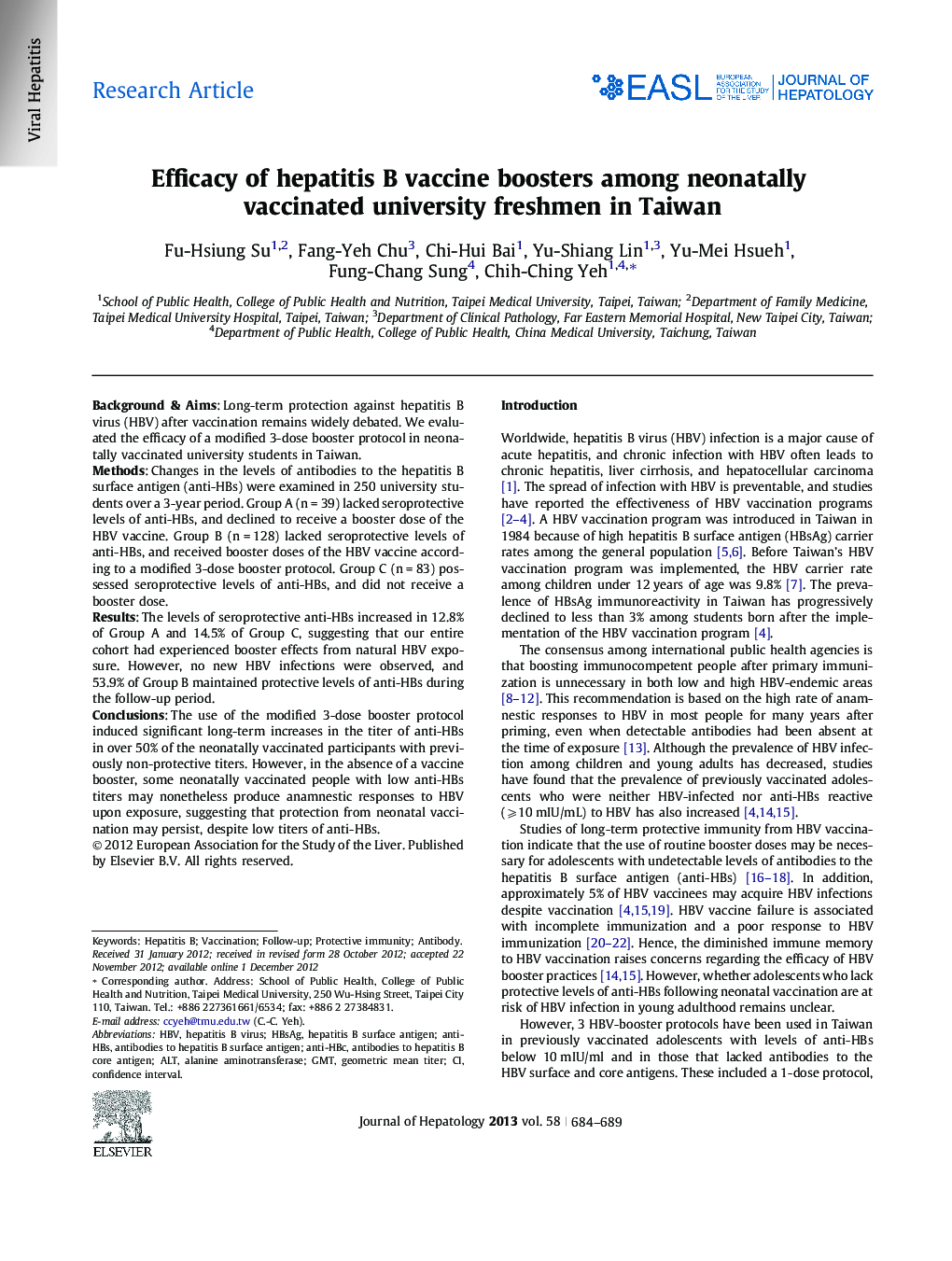| Article ID | Journal | Published Year | Pages | File Type |
|---|---|---|---|---|
| 6105500 | Journal of Hepatology | 2013 | 6 Pages |
Background & AimsLong-term protection against hepatitis B virus (HBV) after vaccination remains widely debated. We evaluated the efficacy of a modified 3-dose booster protocol in neonatally vaccinated university students in Taiwan.MethodsChanges in the levels of antibodies to the hepatitis B surface antigen (anti-HBs) were examined in 250 university students over a 3-year period. Group A (n = 39) lacked seroprotective levels of anti-HBs, and declined to receive a booster dose of the HBV vaccine. Group B (n = 128) lacked seroprotective levels of anti-HBs, and received booster doses of the HBV vaccine according to a modified 3-dose booster protocol. Group C (n = 83) possessed seroprotective levels of anti-HBs, and did not receive a booster dose.ResultsThe levels of seroprotective anti-HBs increased in 12.8% of Group A and 14.5% of Group C, suggesting that our entire cohort had experienced booster effects from natural HBV exposure. However, no new HBV infections were observed, and 53.9% of Group B maintained protective levels of anti-HBs during the follow-up period.ConclusionsThe use of the modified 3-dose booster protocol induced significant long-term increases in the titer of anti-HBs in over 50% of the neonatally vaccinated participants with previously non-protective titers. However, in the absence of a vaccine booster, some neonatally vaccinated people with low anti-HBs titers may nonetheless produce anamnestic responses to HBV upon exposure, suggesting that protection from neonatal vaccination may persist, despite low titers of anti-HBs.
